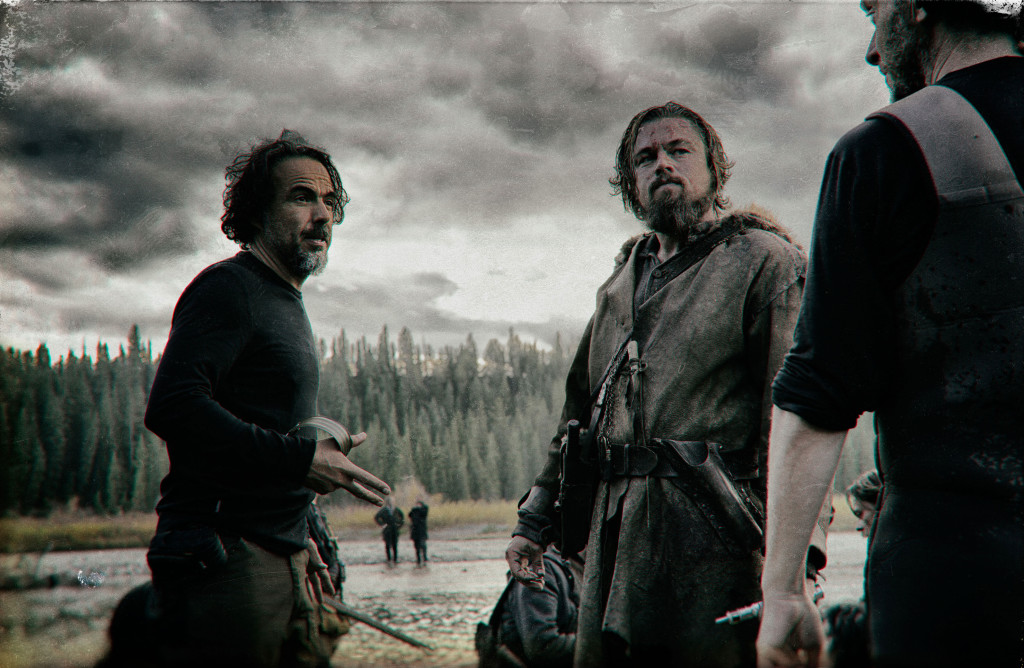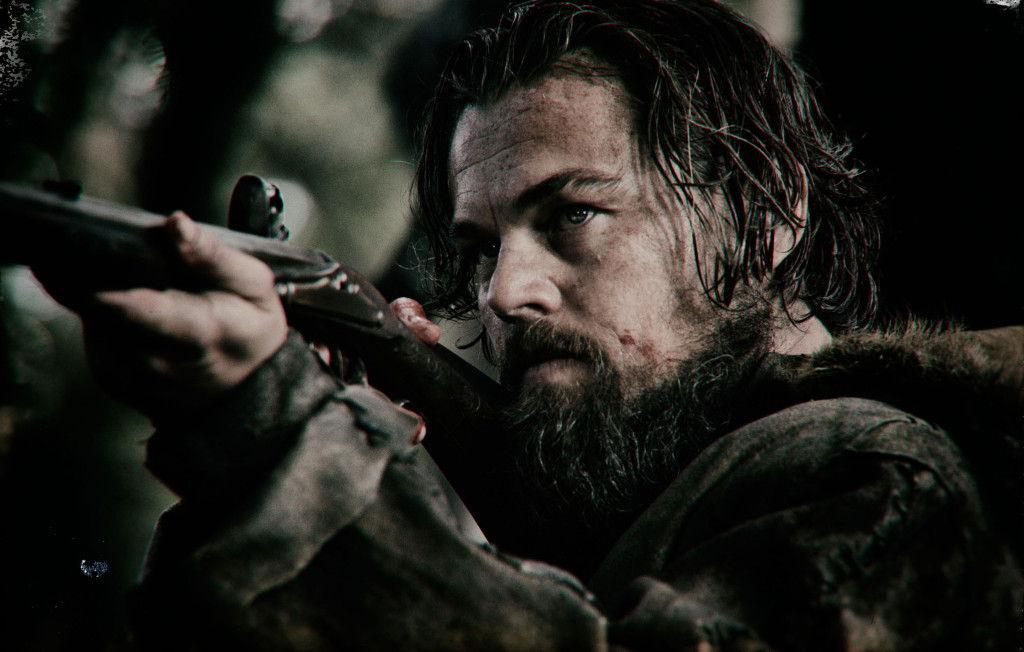Genre: Drama/Period/Thriller
Premise: Set in the early 19th century, a group of fur traders leave one of their own to die after he gets injured. Unfortunately for them, he survives, and he’s got vengeance on his mind.
About: You may not have heard of The Revenant yet, but you will. The movie is poised to win so many Oscars, they might as well let everyone involved produce that night’s show. It’s directed by the guy who did Birdman. It stars Leonardo DiCaprio. It co-stars Leo’s best bud, Tom Hardy. It’s also got one of the hottest actors in England, Ex Machina and Star Wars 7 star Domhnall Gleeson. Throw in one of the hippest young actors around, Will Poulter, and this thing bleeds Oscar juice. The script has been in development at Leo’s company for a long time. This draft was written by Mark L. Smith in 2007. However, Inarritu did a director’s pass on it before shooting (and is actually taking a screenplay credit). Also, they’ve changed the ethnicity of the main character, Hugh Glass, from African-American to white, so that Leo can play him. Don’t worry though. As far as I can tell, this isn’t a Rachel Dolezal situation.
Writer: Mark L. Smith (based on the novel by Michael Punke)
Details: 104 pages
I’ve heard so many great things about this script, I’ve needed to open an Excel spreadsheet to keep track of the compliments. Over ten members of the Scriptshadow Community have checked it out. Seven of them told me it was great. Two liked it. And only one actively disliked it.
Even with those expectations, I came out of this one shaking. I don’t know if this is an acceptable way to describe a period piece. But basically, The Revenant is Gravity set in 1820. Confused? Read on.
It’s 1820, Missouri. Fur trading was the Uber of the time, and we’re following a group of fur traders down the river when they’re attacked by a particularly nasty tribe of Indians known as the Arikara.
Half the traders are killed and it would’ve been more had Hugh Glass, a badass navigator, not beaten some Arikara ass. Glass ends up saving two men in particular, the mentally unstable John Fitzgerald and eager young buck, Jim Bridger.
After they’ve escaped, in a freak attack, Glass gets pummeled by a bear that practically rips his face off. He kills the bear somehow (He kills a fucking bear!), but it leaves him a barely recognizable twisted mass of blood and guts. Somehow, the captain of the operation stitches Glass up, but he can barely breathe, much less move.
The traders wait for Glass to die so they can continue on, but Glass is a fighter. He will – not – die. The Captain eventually convinces Fitzgerald and Bridger to watch over Glass while they get help from the nearest outpost. But Fitzgerald gets bored and convinces Bridger to leave Glass to die. He’s barely clinging to death anyway. It’s not like he’s going to live through this.
But Glass somehow lives through this. A man who can’t even move somehow figures out how to feed himself (eating grass), drink (he rolls into a marsh), travel (he crawls onto a floating log in the river), fix the hole in his throat (he burns it closed with gun powder).
He survives rattlesnakes, gangrene, waterfalls, boulders at the bottom of waterfalls, maggots eating away at his open wounds, Vultures who eat him alive, racism, and multiple attacks from Indians. Glass can’t go a step without something attacking him. And somehow, he survives it all.
All so he can find the men who left him to die – the men he will not rest until he kills.
There’s this show I used to watch called “I Survived.” It’s a brilliantly simple concept. People who survived all sorts of crazy shit are interviewed about their experience. They take you through their story step by step, reliving the impossible way in which they cheated death.
In this show, you hear about people who survived F5 tornados, mountain lion attacks, having their arms ripped off by farming machines, airplane crashes, house fires. But all of these stories would pale in comparison if Hugh Glass told his story.
I mean this guy’s survival skills are insane. There’s this scene early on, after he’s been left, where he’s trying to move five feet. Just FIVE FEET. And all he has is a gimp arm and a barely-operational leg. And he’s just SLIDING, millimeter by millimeter, forward.
Or later, when he finally gets to water, he desperately tries to take a drink, only to watch the water leak out of the hole in his throat left from the bear attack. So what does he do? HE LIGHTS HIS NECK ON FIRE AND BURNS THE HOLE CLOSED. That’s when I realized I was onboard for the full trip on this one. Any character who does THAT to survive, I want to see what he’s gonna do next.
You see, not enough writers write characters that you want to ROOT FOR. They write characters who are mean or dumb or apathetic or boring and expect us to be like, “Yeah! What’s going to happen next!”
You know the guy I want to follow? The guy who wants to live so badly, he will snort out snot and blood to crawl five feet in 60 minutes. That’s the guy I want to follow. The guy who WANTS TO SURVIVE. The guy who WILL KEEP FIGHTING UNTIL HIS LAST BREATH.
The Revenant also taught me that if you want to make a character likable, do so THROUGH HIS ACTIONS as opposed to THROUGH HIS WORDS. For example, I see a lot of writers who say, “Okay, what can I have my hero say so that he’ll be likable?” And they’ll try to make him funny. Or they’ll have him compliment other characters. Or they’ll try to give him a “magnetic” personality.
And it’s not like those things don’t work if done right. But if you REALLY want to make a character likeable, do it through his actions. When the Arikara attacked, Glass was one of the only traders SAVING OTHERS. He was one of the only guys unafraid of the moment. His bravery saved lives, and THAT made him likable. Then later on, when he’s clinging for life, he KEEPS FIGHTING. Audiences admire that. They like people who fight.
Moving on, one of the best ways to make a script spec-friendly is to give your characters a PHYSICAL DESTINATION they’re headed to. Here, the traders are headed to an outpost. Even after they leave Glass, we know Glass is headed to that same outpost so he can kill the men who left him.
The reason physical destinations work so well is because the audience is never confused. I read so many amateur screenplays where I have no idea what’s going on because characters are just running into each other and babbling about who knows what. When you have a “physical destination” story, your reader will never be confused. He knows exactly what your hero is trying to do and this trick keeps the story on point. Not to say it’s the only way to write a script. But if you have this, you have a huge advantage in the clarity department.
The only reason I’m not assigning The Revenant an “Impressive” is because of Glass’s motivation. He wants to avenge these two guys who left him. But the thing is, they actually had good reason to leave him. They were in dangerous Indian territory and Glass was barely clinging to life. Any doctor in the world would’ve told you he had a .000001% chance of surviving. And they barely even knew Glass. It’s not like they were best friends. So to leave him made sense on some level. And you’d think Glass would understand that.
I mean, contrast this motivation with the motivation in The Brigands of Rattleborge. The bad guy had raped and killed the hero’s wife. THAT’S something you avenge. It’s a seemingly small detail but if you’re going to base an entire story around revenge, you want the matter that the character is avenging to be as intense as possible.
Still, holy shit. This was an awesome story. And proof that if you write an awesome character (the “never give up” Glass), A-list actors will want to play the part. Hell, they’ll even make you change the character’s ethnicity to play the part.
[ ] what the hell did I just read?
[ ] wasn’t for me
[xx] worth the read
[ ] impressive
[ ] genius
What I learned: “Physical destination” stories work particularly well as scripts because the reader is never confused about what’s going on. There’s a comfort and a clarity in knowing exactly where our hero is headed.



